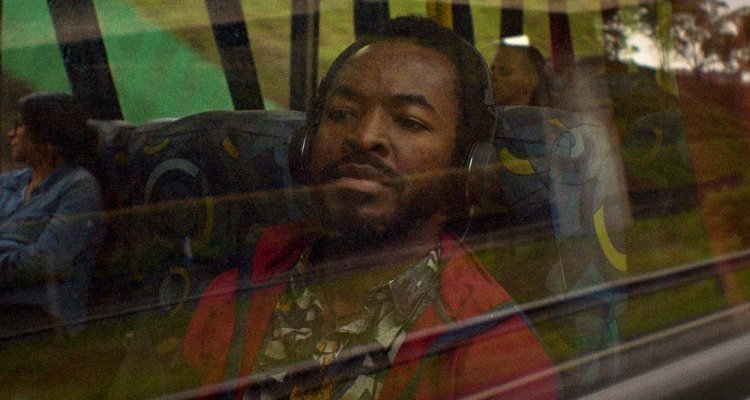A deliberate, analytical film brimming with subtext and metaphor, “Shine Your Eyes” doesn’t content itself with just one story, opting instead to weave a tale that straddles centuries, continents, and planes of reality. An immigration story that manages to draw in themes about manhood, familial identity, and cultural preservation, director Matias Mariani has crafted a picture that speaks to a broader transient experience that transcends both time and place.
READ MORE: The 25 Best Movies Of 2020 We’ve Already Seen
At its foundation, the narrative thrust of “Shine Your Eyes” is straightforward enough. Amadi (O.C. Ukeje) has traveled from Nsukka, Nigeria to São Paulo, Brazil to track down his older brother, Ikenna (Chukwudi Iwuji). Gone for a little more than a year, Ikenna left behind his betrothed and a devastated mother, the latter of whom has tasked Amadi with bringing the family’s eldest home.
READ MORE: The 100 Most Anticipated Films Of 2020
Amadi’s search takes him all over São Paulo, where he learns that Ikenna’s claims about being a professor and living in a nice neighborhood were little more than fabrications sold through clever social media tricks. This flow of deceit runs in both directions, though, as those in São Paulo who know Ikenna tell Amadi about family in Nigeria that bear no relation to reality. What’s more, the deeper Amadi digs, the further he gets into the work Ikenna had been doing before his disappearance, which incorporates snippets of quantum mechanics, game theory, and what appears to be a system for predicting the future.
Whether Ikenna had a mental breakdown or did in fact crack some kind of unified theory on space-time plays out in the construction of the movie itself. For example, Amadi’s journey through São Paulo demonstrates that Ikenna was indeed living in two separate planes of reality: the one known to his family, and the one known to his Brazilian peers. It’s not comic book-level alternate universe stuff, but as Amadi’s journey to track down his sibling continues, the parallel tracks the brothers are on begin to give some credence to Ikenna’s alternate reality work.
Amadi is seeing the same people, and at one point, even begins to fall for Ikenna’s girlfriend, which ties into a spiritual ritual the brothers engaged in at a young age where Ikenna supposedly reincarnated inside Amadi. The themes are complex and stacked over several layers of metaphor and subtext that come at the audience faster than one might hope to process, which itself seems to be the point. The audience is trying to parse all of this out in real-time along with Amadi, and none of the answers come wholesale, and instead must be pieced together from fragments littered throughout the story.
In this way, the film has the feel of a Darren Aronofsky picture, with reflexive themes working within the narrative as well as the larger meta text. Ikenna’s supposed duty to his family, and Amadi’s inability to satisfy his mother’s maternal cravings speak to a broader familial struggle that exists outside of this family, and for all the wandering children who took the hopes of their people with them during the transatlantic voyage from Africa.
When Amadi gets temp work in his uncle’s beauty shop in São Paulo, he gets instruction on how to tell the difference between different hair weaves based on texture alone. As the uncle explains, Brazilian hair has a different feel from African or even Russian weaves, and being able to tell the difference is key. Mariani’s story is concerned about Ikenna and Amadi’s dilemma, sure, but scenes like these open up the world of “Shine Your Eyes” to examine the ways immigrants lose touch with their identity, and no longer have a feel (literally) for their culture.
This signaling doesn’t just emerge in the script, but in the visual representation as well. Mariani does not move his camera much, and presents everything in boxy 4:3. This decision to nail down the camera and let the characters drift in and out of frame like pedestrians captured on hi-res cameras present this as an outsider’s tale, never allowing the audience the personal access needed for a sense of inclusion.
And this seems altogether appropriate, for this is a story about outsiders and a world that is designed to keep them in play, but at arm’s length. There are subtitles for the bits in Portuguese and Igbo, but some of the scenes in English could have used them as well, as “Shine Your Eyes” often presents information fast and in low tones. And while the film admirably makes its audience work for the truth, going on a rewarding journey that ties up all of its loose ends by the end of its tidy 100-minute runtime, some may struggle with the quantum narrative. Those that hang in there will be amply rewarded, however, as the audience, like Amadi, has a lot to learn if they stay the course. [A-]

